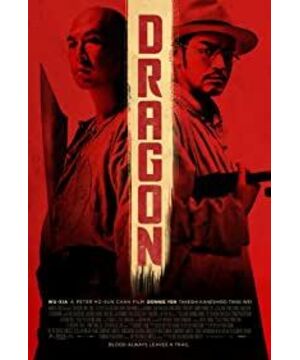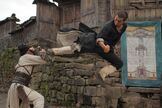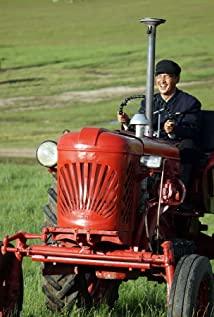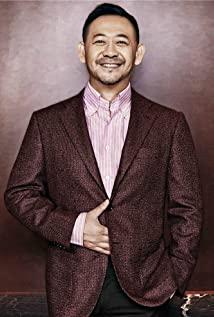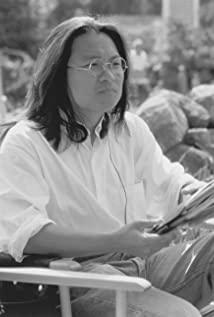I had guessed that Chen Kexin has been working on genre films at these points. This time it is Isn't it about to change the "martial arts genre films" in people's minds again? In fact, [Martial Arts] is indeed still the kind of "wuxia core" that we are familiar with. Although the first half is basically the routine of "restore the case and explore the truth", but in Donnie Yen, the first protagonist What is reflected is still the thought of "reclusion" and the plot of "conflict between recluses and history" triggered on this basis. This old way basically constitutes the big framework of [Martial Arts]. The golden age [Swordsman], the new century [Crouching Tiger, Hidden Dragon], and even the previous year's [Jianyu], all interpreted the word "return to seclusion" clearly, so it can be considered that the ideological core of [Martial Arts] is still "Unchangeable remains the same."
Speaking of [Jian Yu], I suddenly found that the two "martial arts films" released in the past year have a lot in common. The history of the characters...[Jian Yu] is undoubtedly a well-made "replica masterpiece" since the new century. Although it rarely uses a lot of brush and ink to express the
world "beyond the rivers and lakes", it does not jump out of the general framework. Improvements are still more reflected in weapon moves. [Martial arts] obviously didn't jump out of the big box, but in addition to Tang Long, played by Donnie Yen, who embodied the symbol of "reclusion", the film also set up Xu Baijiu, played by Takeshi Kaneshiro, who embodied the "relationship between people and law". Thinking about the "relationship between man and law" does not appear in the martial arts genre films that I am familiar with. I agree that although this setting appears more often in other genre films, it is new in [Martial Arts] and stands up well. The role of Takeshi Kaneshiro, I attribute this setting to the design that the director is not limited to the classic martial arts framework. Fresh, but didn't change the big picture.
It would be inappropriate to say that Chen Kexin changed "Martial Arts"; but he did bring considerable improvements to "Martial Arts", which is not under [Jianyu].
First of all, [Martial Arts] is quite fascinating. This is indeed closely related to the "microscopic analysis of martial arts" that has been vigorously promoted before. This microscopic method of image analysis of human body structure and martial arts characteristics was indeed rare in martial arts films in the past, and it was even new in Chinese films. Although this thing is like a "skin layer change" like improving the display of moves, it is a good thing to improve the visual effect. This kind of image analysis is not only in the form of expressing the structure of the human body through special effects pictures, but also in that it extends to many fast flashback-style picture explanations. Take Xu Baijiu’s reproduction cabinet plan as an example: there are not only acupoint maps, but also a lot of Action flashbacks, and the presence of time-travel-style characters at the same time (refer to [Injured City] Takeshi Kaneshiro to reproduce the crime scene) and other pictures are completed in one paragraph, and the visual expression is full. In addition, "micro-analysis" has also become a powerful aid to the action sequences in the film. The "analysis" in the first half not only helps to visualize the investigation, but also constitutes a kind of action construction, which lays the tone for the action of the whole movie in the future, leaving the audience with "the complex structure of the human body, nine tendons and ten acupoints are hidden inside. With the impression of "mystery", the audience watched the next two battles with the idea of "cooking the dice to solve the cow", and it was naturally more dangerous.
Secondly, [Wuxia] is also quite attractive in the processing of structural paragraphs, and it can be said that there are few cold spots. There was a fight at the beginning, which belonged to the first wave of brilliance. ” comes on the scene quickly, and then ends the entire development progression with a fierce battle with a parkour flavor; the climax is the unquestionable BOSS battle. Although the whole film is nearly 2 hours long, and as a martial arts film [Martial Arts] has only 3 big action scenes, these three action scenes with progressive development of intensity have well completed the "Crested Head and Leopard Tail" task. The development of the progressive part, because Xiaoxiao applied the mode of a detective film and had a high degree of video content, was not new and redundant, but brought out a small climax of the movie. To put it aside, compared to the detective section in the middle, [Martial Arts] can almost kill the fake detective of [Di Renjie] in seconds.
Of course, [Martial Arts] also has some unavoidable shortcomings.
Judging from the existing reports, it is basically certain that the original name of the [Martial Arts] script is "The Conspirator". If starting from "The Conspirator", Xu Baijiu's role has a more logical reason for existence. Now it has been changed to [Martial Arts]. Although it is unclear how much the original script has been changed, the title is appealing and lacks the depth of the accomplices - well, this is not a shortcoming...
The big problem is that the second half of the story is clear. After the identity led to the "Seventy-two Earth Demons", Tang Long's life history exploded, and it was indeed a bit beyond his ability to expect to suddenly reveal the character's history in the second half of the movie and bring out an emotional climax. . The weakness at the end of the film lies in the fact that the previous history of the characters was not revealed enough, and even there were few foreshadowings, resulting in a lack of recognition of the later emotions, and the sudden climax was difficult to establish well. It can even be said that at the climax, the play is all supported by the old drama bone Wang Yu alone. If it is said that the scene of a certain paragraph depends on the actors alone, it proves that the establishment of the scene before and after is unreasonable. [Martial arts] is such an example. Unfortunately, the powerful aura and accurate and explosive performance of Wang Yu's comeback.
There is also the problem of Ayu played by Tang Wei. After incomplete identification, although there are only two protagonists in the movie, the role of Ayu still followed in the footsteps of Sister Xu, and Tang Wei was vase. In any case, the role and setting of Ayu's character in the film are not enough to be the first reason for Tang Long to go into hiding. In this way, the movie gives the audience the same feeling as Ayu's questioning, "If I met another woman that day, Will you still stay?"
There is still the end of the dissatisfaction, the end of the fierce battle, because of the existence of Xu Baijiu, we basically believe that "science" defeated "magic power", but your sister, you actually came out and said "believe it" Heavenly Emperor doesn't hang a class"? ! What's the point of this treatment?
In recent years, it is no longer news for Hong Kong people to go north, which basically verifies Chen Kexin's point of view. As the first Hong Kong filmmaker who proposed to abandon Hong Kong films and go to the mainland, Chen Kexin's works in recent years have quickly broken the pattern of the old Hong Kong films, and even many details have ruthlessly abandoned the small cultural details of Hong Kong films, such as This time, the Cantonese version of [Martial Arts], the Cantonese version appears to be very "dubbed" in many places, especially when the folks sing the Mandarin country ditty...
In the past two years, [Jianyu] and [Martial Arts] seem to have gradually established a trend of martial arts films, which is to show more of the world outside the rivers and lakes. The land is hardly involved in the world of Jianghu. Originally, building a world outside the common people like a fairy tale world is a major feature of the inherent martial arts genre, because its subject matter is not realistic. While the "real world" of ancient times was not much realistic in nature, this debasing depiction can indeed be seen as a deviant creation. But whether this trend will become mainstream, or even a trend in the final analysis, remains to be proven later.
View more about Dragon reviews


